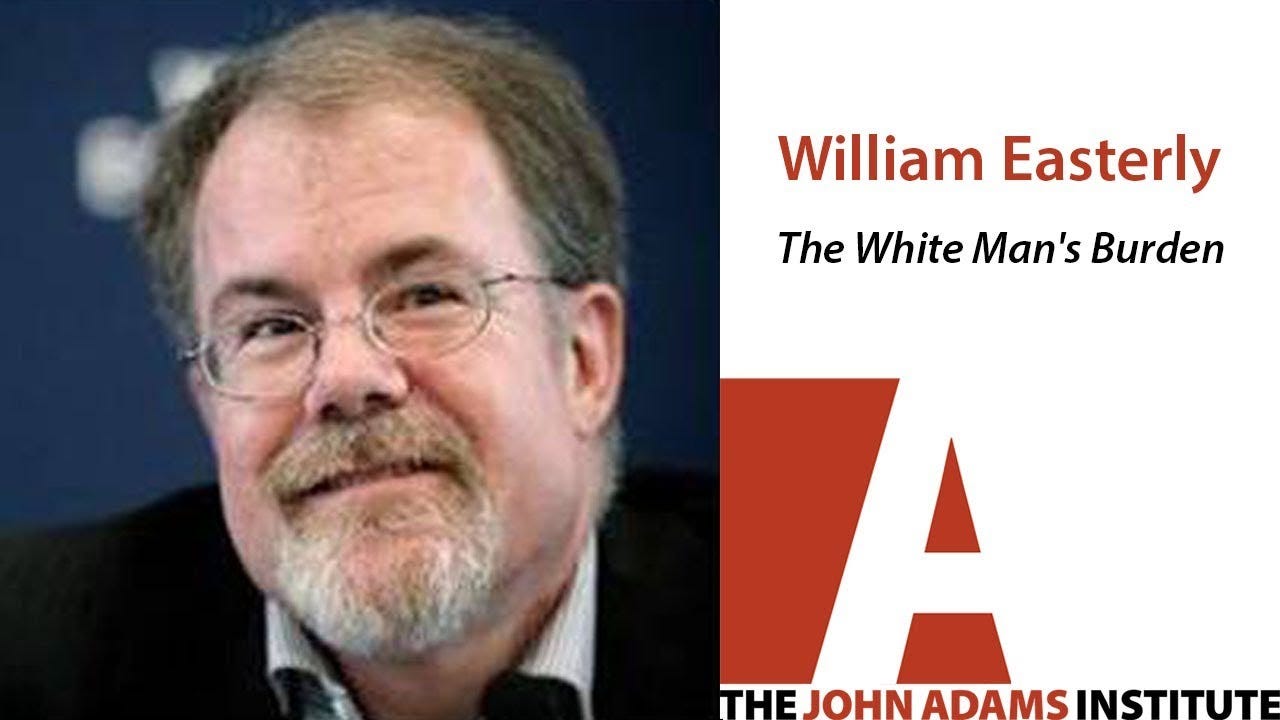What Western experts tell developing nations
Let's see if their advice matches what we know from the history of progress
In my first book, From Poverty to Progress, I developed a theory as to why societies transform from a state of poverty to a state of progress.As a reminder, I use the following working definition of progress:
“the sustained improvement in the material standard of living of a large group of people over a long period of time.”
If you want to understand why I use this definition here and in more detail here. After a lifetime of studying history, I developed the concept of the Five Keys to Progress to explain the necessary preconditions for a society to transform from a state of poverty to a state of progress.
Once a society achieves the Five Keys to Progress, it transforms into a vast decentralized problem-solving network. My concept of How Progress Works explains the day-to-day human behaviors within that network which create material progress once the Five Keys to Progress evolve.
Most of my second book, Promoting Progress, focuses on policy reform proposals that wealthy nations should implement to keep their progress going. In this series of Substack articles, I present a number of policy reform proposals to enable developing nations to join in on the progress of wealthier nations.
In this article, I would like to review some of the key theories presented by Western development experts for how poor nations can develop. In subsequent articles, I will compare these theories to what we have learned from how wealthy nations achieved their wealth in the past.
Most of the following is an excerpt from my second book Promoting Progress: A Radical New Agenda to Create Abundance for All. You can order my e-books at a discounted price at my website, or you can purchase full-price ebooks, paperback, or hardcovers on Amazon.
Other books in my “From Poverty to Progress” book series:
You can read other articles on developing nations, including:
Why developing nations are still poor:
What wealthy nations can do to help developing nations:
What developing nations can do to help themselves:
How developing nations can create competitive export industries
Why Developing nations need to create thriving export industries
Current Expert Advice
Economic development in developing nations (formerly known as “Third World nations”) is a controversial domain of academic inquiry. I believe that most advice given to developing nations by Western experts is misguided, albeit well-intentioned. Before outlining my proposals, I will briefly overview the currently proposed alternatives.
Economic School
Currently, there are four schools of thought among Western experts who advise developing nations. Economists who believe in free-market economies dominate the first school of thought. These economists believe that good institutions build the foundations that enable self-interested individuals to solve problems that benefit all of society.
They believe that, if developing nations implement free trade, reduce corruption, establish the rule of law and property rights, eliminate counter-productive government interventions in the economy, and build legal and law enforcement institutions to enforce those principles, free markets will naturally emerge. Those free markets will then usher their nations into prosperity. This school of thought is sometimes called the “Washington Consensus.”
I assess the usefulness of this school’s advice for the leaders of developing nations in this article.
Foreign Aid School
The second school of thought is dominated by development experts and non-governmental organizations (NGOs). Jeffrey Sachs is the key thinker in this school.
The “foreign aid” school, as I will call it, believe that wealthy nations and individuals should spend more on foreign aid to assist developing nations to get out of “poverty traps”. They believe that poor nations are trapped in poverty that only can be overcome with foreign aid. In general, they argue for increased foreign aid that is targeted at improving education, sanitation, and health care. Once this foreign aid overcomes the poverty traps, these people believe that developing nations can grow into wealthier nations.
I assess the usefulness of this school’s advice for the leaders of developing nations in this article.
The Rights School
The third school of thought focuses on individual rights. William Easterly is the key thinker in this school. This school of thought believes that developing nations are run by authoritarian regimes that will not reform their institutions because it is against their self-interest. The school also believes that these regimes channel foreign aid into strengthening those authoritarian power structures rather than helping the poor.
This school believes that the poor in all nations need the same political freedoms that wealthy nations enjoy. They believe that democracy is one of those freedoms. Once the people have those rights, their nations can grow their way out of their poverty.
Sustainable Development School
The fourth school of thought focuses on what they call “sustainable development.” Exactly what this term means is a little unclear, but it focuses quite heavily on renewable energy and less resource-intensive agriculture, transportation, and manufacturing.
The sustainable development school believes that a greener version of the Industrial Revolution is possible and will lead to better outcomes for the natural environment and poor people in developing nations. They believe that more traditional paths to prosperity will seriously hurt the natural environment, so developing nations need to find a different path.
The Wrong Keys
For the most part, I do not oppose much of what is said by any of these schools. I just think that they all miss the point because they do not understand the importance of the Five Keys to Progress. And, because of that, their proposals have not achieved the desired results.
Moreover, it is not clear that any of these schools have produced positive results for developing nations. In fact, the current progress in developing nations has come largely from developing nations ignoring Western experts and following very different paths.
When viewed from a very high level, one can see that all four schools have a perspective somewhat similar to mine. I believe that once a society establishes the Five Keys to Progress, societies will naturally experience progress and individuals will work to solve their own problems without help from outside.
The difference is that we all believe in different keys to progress. Economists believe that good institutions and free markets are the keys to progress. Development experts believe that foreign aid in the areas of education, sanitation, and health is the key to progress. The rights school believes that individual rights and democracy are the keys to progress. The sustainable development school believes that green energy and agricultural technologies are the keys to progress while protecting the environment.
We all agree that there are a few keys to progress, but we all disagree as to which they are. So who is correct?
I believe that all four of the competing schools of thought are talking about factors that matter. But I also believe that none of the current schools give very helpful advice to developing nations. So in upcoming articles I will go through them one by one so that I can explain why.
Most of the above is an excerpt from my second book Promoting Progress: A Radical New Agenda to Create Abundance for All. You can order my e-books at a discounted price at my website, or you can purchase full-price ebooks, paperback, or hardcovers on Amazon.
Other books in my “From Poverty to Progress” book series:
You can read other articles on developing nations, including:
Why developing nations are still poor:
What wealthy nations can do to help developing nations:
What developing nations can do to help themselves:











" In fact, the current progress in developing nations has come largely from developing nations ignoring Western experts and following very different paths."
Isn’t that interesting? It’s almost as if we do not understand how our own progress came about. Without this understanding, we are venerable to backsliding in the future.
I recall an episode of the 80000 hours podcast I listened recently with a industrial policy and development expert called Mushtaq Khan. https://80000hours.org/podcast/episodes/mushtaq-khan-institutional-economics/
The main insight I got from that is that to deal with corruption and "dysfunctional institutions" you need to work within the existing power structures and networks that exist. Not just top down power but at every level of society. Observing and dealing with horizontal power structures and existing communities or organizations, not just vertical.
I suppose he's more in the first category of people you mentioned, but it's an interesting perspective in any case